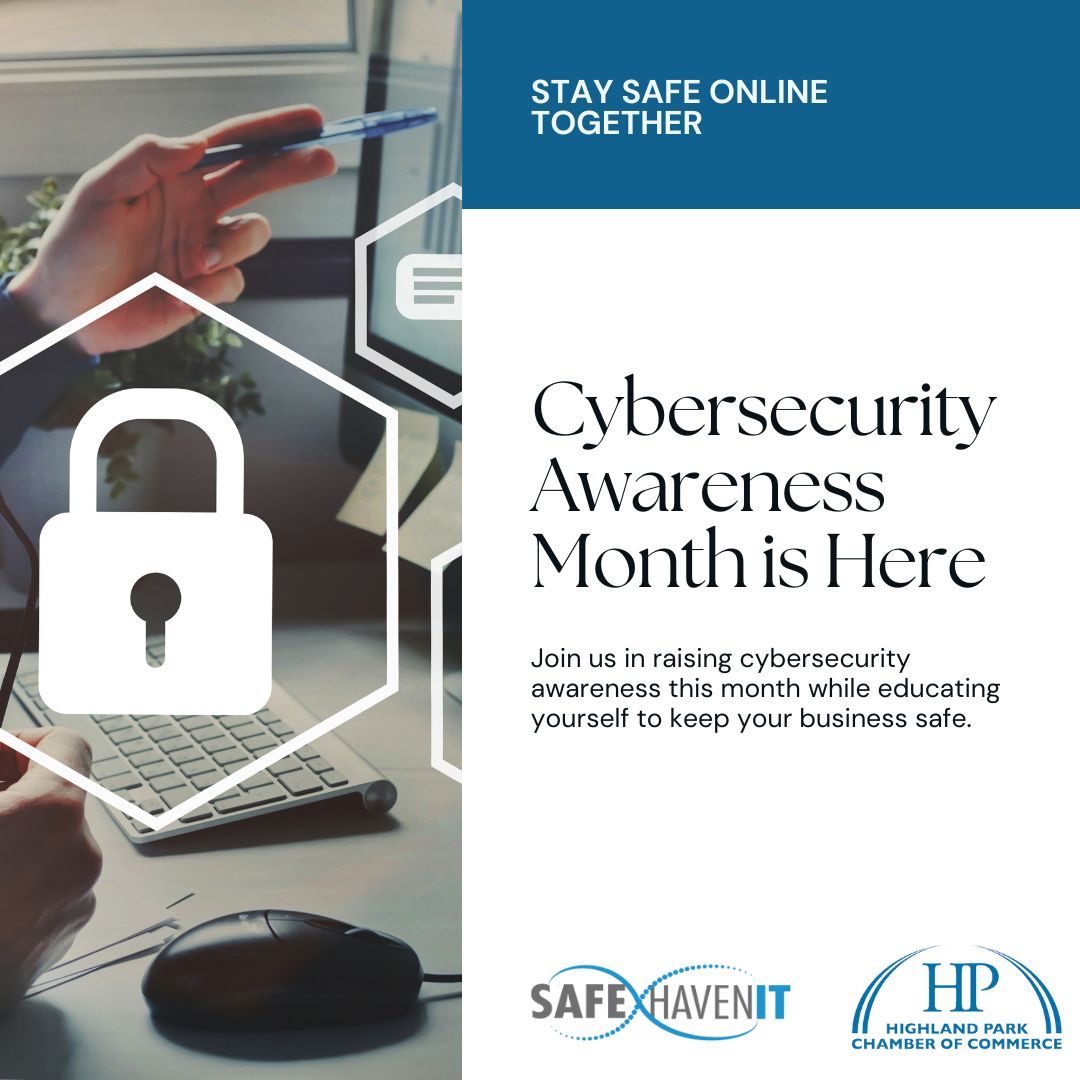How Small Businesses and Restaurants Can Improve Their Cybersecurity
How Small Businesses and Restaurants Can Improve Their Cybersecurity

How Small Businesses and Restaurants Can Improve Their Cybersecurity
In today’s digital landscape, even small businesses and restaurants are vulnerable to cyberattacks. Many owners mistakenly assume they’re too small to be targeted, but the reality is quite different. Cybercriminals often see smaller businesses as easier targets because they may lack the robust security measures of larger organizations. For restaurants, especially, customer data—including payment information—is a prime target for hackers.
With that in mind, here’s how small businesses and restaurants can improve their cybersecurity to protect both themselves and their customers.
1. Educate Employees on Cybersecurity Best Practices
Your employees are the first line of defense in cybersecurity. Often, cyberattacks begin with a simple mistake like clicking on a malicious link or downloading an infected file. By educating your staff on the basics of cybersecurity, you can reduce the risk of an attack.
Key training topics should include:
- How to recognize phishing emails
- The importance of strong, unique passwords
- Safe internet browsing practices
- Reporting suspicious activity immediately
2. Implement Strong Password Policies
Weak passwords are one of the most common vulnerabilities for small businesses. It’s essential to enforce a strong password policy across your organization. Passwords should be complex, at least 12 characters long, and contain a mix of letters, numbers, and special characters. Encourage your team to avoid using easily guessable information like birthdays or common phrases.
Using multi-factor authentication (MFA) is another effective way to add an extra layer of security. MFA requires a second form of verification, like a text message code, which can prevent unauthorized access even if a password is compromised.
3. Secure Your Point-of-Sale (POS) Systems
Restaurants and small businesses often rely heavily on POS systems to process payments. These systems store sensitive customer data and are frequent targets of cyberattacks. To protect your POS system:
- Use encryption to secure payment information
- Ensure that your POS software is always up to date with the latest security patches
- Change default passwords and settings when installing new hardware
- Regularly monitor POS activity for any unusual or suspicious transactions
4. Backup Data Regularly
No business is immune to data loss, whether from cyberattacks, hardware failure, or even human error. That’s why having a reliable backup strategy is critical. Regularly backing up your business data ensures you can recover quickly in the event of an attack, like ransomware, where files are held hostage until a payment is made.
Use cloud storage and local backups to keep copies of essential data. Make sure these backups are also protected with encryption and passwords. For restaurants, this might include customer details, transaction history, inventory data, and employee records.
5. Install Firewalls and Antivirus Software
Firewalls and antivirus software provide an essential defense against cyber threats. A firewall helps monitor incoming and outgoing traffic on your network, blocking unauthorized access. Ensure that you have a firewall installed on all your business devices, including computers, tablets, and smartphones.
Antivirus software can help detect and remove malware that has infiltrated your system. Like your POS software, your firewall and antivirus should be updated regularly to address new vulnerabilities and threats.
6. Regularly Update Software
Outdated software is an open invitation to cybercriminals. Software developers often release updates that fix security vulnerabilities and improve overall performance. Whether it's your POS system, operating system, or third-party apps, make sure to install updates as soon as they become available.
Enabling automatic updates on critical systems can ensure you don’t miss essential security patches. This is particularly important for payment processing tools, web browsers, and any software that interacts with sensitive customer data.
7. Limit Access to Sensitive Information
Not every employee needs access to all parts of your business’s network or sensitive information. Implement a role-based access control (RBAC) system, which restricts access to specific data based on an employee’s role. For instance, while the restaurant manager may need access to financial data, servers and kitchen staff likely do not.
By limiting access, you reduce the risk of insider threats and accidental data leaks. Additionally, regularly audit access permissions to ensure that they align with employee responsibilities.
8. Use a Virtual Private Network (VPN)
For businesses that operate remotely or require employees to access the network from outside the physical location, a VPN can provide an extra layer of security. A VPN encrypts internet traffic, making it harder for hackers to intercept sensitive information.
If your staff connects to the business network from their personal devices or public Wi-Fi (such as in a restaurant setting), using a VPN can prevent unauthorized access to your systems.
9. Ensure Compliance with Industry Regulations
Certain industries, including those that handle payment information (like restaurants), are subject to specific regulations such as the Payment Card Industry Data Security Standard (PCI DSS). Compliance with these standards is not just a legal requirement but also a good cybersecurity practice.
Make sure you understand the regulations relevant to your business and take steps to comply. This might involve securing payment systems, storing customer data safely, and following proper procedures for data disposal.
10. Prepare for Cyber Incidents with a Response Plan
Even with the best cybersecurity measures in place, breaches can still happen. Having a response plan will help you act quickly and minimize damage if an attack occurs. Your plan should include:
- Steps to contain and mitigate the attack
- Contact information for cybersecurity experts or IT support
- Legal considerations and reporting obligations
- A communication plan for notifying customers or partners
Conclusion
Small businesses and restaurants are increasingly at risk for cyberattacks, but with proper precautions, they can significantly reduce their vulnerability. By educating employees, securing payment systems, regularly backing up data, and staying compliant with industry standards, businesses can create a safer environment for their customers and protect their reputations.
Investing in cybersecurity is not just about preventing attacks; it’s about building trust with your customers and ensuring the long-term success of your business. Start with the steps outlined here, and you’ll be well on your way to improving your business’s digital defenses.

